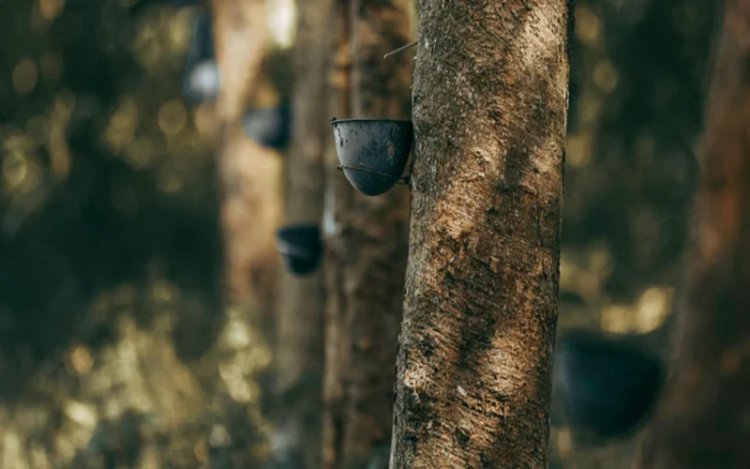Analyzing the Role of iSNR in Helping Indian Rubber Industry Meet EU Deforestation Requirements

Indian Rubber Board rolls out Sustainable Rubber Initiative to meet EU
The Indian Rubber Board has initiated Indian Sustainable Natural Rubber (iSNR) initiative in Kerala's Kottayam with a view to promote sustainable natural rubber sourcing on the precaution that it should comply with international sustainable norms and European Union Deforestation Regulation (EUDR).
Key Officials attended the Launch ceremony among whom were Minister of State for Fisheries, Animal Husbandry, Dairying and Minority Affairs George Kurian, Thiruvanchur Radhakrishnan Member, the Legislative Assembly was there along with the others and the another prominent one to be there included G. Anil Kumar Vice Chairman of the Rubber Board, Member of the Rubber Board, N. Hari
Emphasis on Sustainability
iSNR is one of the initiatives focused on some of the critical sustainability challenges that exist in the rubber industry. Not causing deforestation through the production of rubber, it also supports EUDR in terms of traceability and sustainable sourcing for commodities that enter the European market.
It provides a traceability certificate ensuring the origin of rubber products that makes compliance under EU regulations very easy for stakeholders in any part of the supply chain. The certification shall help Indian rubber manufacturers increase their market access abroad, specifically in Europe.
The government of India has launched some additional steps to improve efficiency in the rubber sector.
For example, the Rubber Board has also floated INR Konnect, under the programme, an online system that connects the grower with a potential adopter for the upgrading of plantation productivity. It can provide accreditation apart from training of production management and sustainable practices along with maintaining a database of certified tappers.
According to the officials, such initiatives are a part of larger efforts to connect with stakeholders-including farmers-and help this sector grow. Kerala, where 74 percent of India's rubber is produced, would be a vital part of the transformation.
The Sustainability Challenge
Natural rubber is basically derived from the Hevea brasiliensis tree and thus holds much importance for many sectors around the world. India happens to be the world's fifth largest producer and the second largest consumer of natural rubber, according to Times of India reports.
However, both natural and synthetic rubber have environmental problems in their production. The former is a by-product of petroleum, but the contribution of synthetic rubber to environmental degradation is much higher. Farming for natural rubber contributes to deforestation and carbon emission if not carried out in a sustainable way.
These challenges call for responses from the part of the iSNR initiative, through responsible farming. The program does not increase deforestation and maintains the ecosystem so that the Indian rubber industry will be of less environmental impact.
International and National Impact
Introduction of iSNR is in tandem with India's sustainability agenda and international commitments. With increasing global demand for sustainable practices especially in the like of EU, the initiative positions Indian rubber producers to meet stringent market requirements.
The emphasis on sustainability is crucially important, as the world grapples with rising global temperatures and intensifying environmental concerns. Traceability and certification mechanisms under the aegis of iSNR assist in the fight against climate change even as the rubber industry remains commercially viable.
Government Support and Industry Participation
During the event, George Kurian emphasized the government’s commitment to supporting the natural rubber sector. He announced plans to gradually increase subsidies for rubber cultivation, signaling a focus on fostering sectoral growth.
The Rubber Board also highlighted its commitment to training and certifying participants in sustainable practices. These efforts aim to improve productivity while ensuring environmental compliance, creating a win-win scenario for farmers and the broader industry.
Conclusion
The iSNR initiative is one of the key steps toward sustainability in the Indian rubber sector. In this regard, the documentation of essential environmental challenges and encouragement toward compliance with international regulations give it a standard-setting for responsible production coupled with full international competitiveness.
Consequently, with INR Konnect, the Rubber Board will promote the active engagement of stakeholders with the objective of productivity and sustainability, side by side. As the world undergoes more stringent environmental criteria, projects such as iSNR set India on the path to leadership in sustainable rubber production.
What's Your Reaction?

















